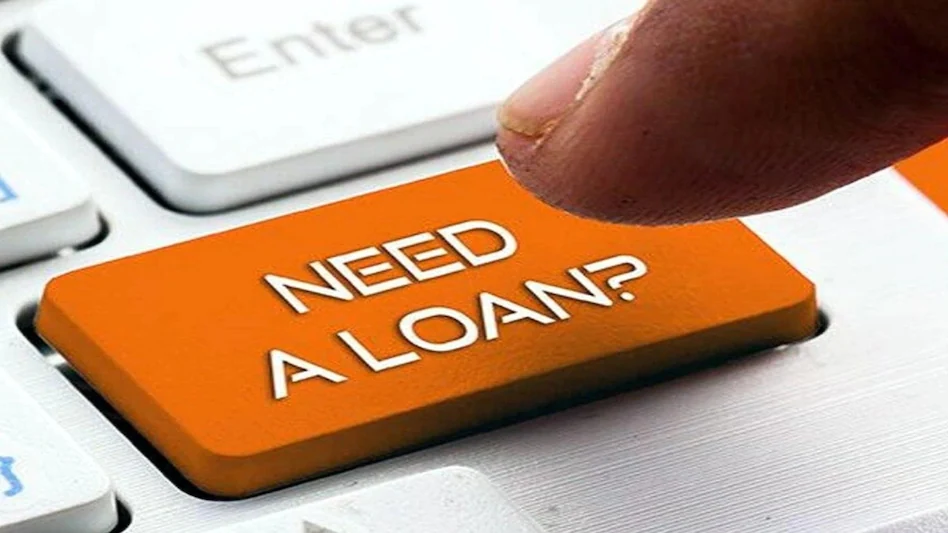If you’re looking to get a loan for an apartment in New York, here’s a comprehensive guide to help you understand the process in detail:
1. Know What Type of Loan You Need
In New York, you will generally need a mortgage loan to buy an apartment. There are different types of mortgage loans available:
- Conventional Loans: These are standard loans that aren’t backed by the government. They may have more stringent requirements in terms of credit score and down payment.
- FHA Loans: These are government-backed loans, often offering lower down payments and less strict credit score requirements. They are ideal for first-time buyers.
- VA Loans: If you’re a veteran, you might be eligible for a loan backed by the U.S. Department of Veterans Affairs.
- Jumbo Loans: If you’re buying a luxury apartment or a property that exceeds the limit for conventional loans, you may need a jumbo loan.
2. Check Your Credit Score
Lenders will look at your credit score to assess your ability to repay the loan. A higher credit score (typically 700 and above) will give you access to better interest rates and loan terms. If your score is lower, you may still qualify but with a higher interest rate or a larger down payment requirement.
3. Calculate Your Down Payment
The down payment for an apartment in New York can range from 3% to 20% of the purchase price, depending on the type of loan you’re applying for. For example, with an FHA loan, you may qualify with as little as 3.5% down, while conventional loans often require at least 20%. Keep in mind that a larger down payment may result in a lower monthly mortgage payment.
4. Find a Lender and Get Pre-Approved
The next step is to find a lender. You can apply with:
- Banks: Traditional banking institutions offer mortgage loans, but they can have stricter requirements.
- Credit Unions: Often have competitive interest rates and more flexibility.
- Mortgage Brokers: These professionals work with multiple lenders to find the best loan for you.
- Online Lenders: There are many online platforms that offer competitive rates and convenience.
Getting pre-approved means the lender has assessed your financial situation and is willing to lend you a specific amount. Pre-approval can give you an edge when bidding for apartments in New York, as it shows the seller you are a serious buyer.
5. Gather the Necessary Documents
You will need to provide documentation to the lender to process your loan application. This may include:
- Proof of income (e.g., pay stubs, tax returns)
- Proof of assets (e.g., bank statements)
- Employment verification
- A list of debts (e.g., credit card balances, student loans)
- Personal identification documents (e.g., driver’s license, Social Security number)
6. Find the Right Apartment
New York offers a wide variety of apartments, from studio units to luxury penthouses. It’s important to know what you’re looking for in terms of location, amenities, and budget. Work with a real estate agent who specializes in New York real estate to help you find the perfect apartment.
7. Make an Offer
Once you find the apartment you want, you’ll make an offer to the seller. If your offer is accepted, you’ll enter into a purchase agreement. The agreement will outline the terms of the sale, including the price and any contingencies (such as inspection results or financing approval).
8. Secure Your Loan
After your offer is accepted, you’ll work with your lender to finalize your mortgage loan. This will involve:
- Appraisal: The lender will require an appraisal to ensure the apartment is worth the amount you’re borrowing.
- Inspection: You may also want to hire a professional to inspect the apartment for potential issues.
- Title Search: The lender will conduct a title search to ensure there are no legal issues with the property.
Once everything is in order, your lender will finalize the loan terms and prepare the necessary documents for closing.
9. Close the Deal
At the closing, you will sign the mortgage documents and finalize the purchase. You’ll also need to provide the remaining balance of the down payment and any closing costs, which can include:
- Attorney fees (in New York, an attorney is often required at closing)
- Title insurance
- Property taxes
- Recording fees
After everything is signed, you will receive the keys to your new apartment, and the mortgage loan will officially be in place.
10. Repay the Loan
Once you’ve closed on your apartment, you’ll begin making monthly mortgage payments, which will include:
- Principal: The amount you borrowed
- Interest: The cost of borrowing the money
- Property Taxes: Often collected by the lender and paid directly to the local government
- Homeowners Insurance: Protects the property in case of damage
- Private Mortgage Insurance (PMI): If your down payment is less than 20%, you might have to pay PMI until you’ve built enough equity.
Final Thoughts
Securing a loan for an apartment in New York can be a complex process, but by understanding each step, you can make the experience much smoother. Be sure to do your research, check your financial standing, and work closely with professionals to find the best loan option for your needs.
Frequently Asked Questions (FAQ) – How to Get a Loan for an Apartment in New York
1. What is the first step in getting a loan for an apartment in New York?
The first step is to check your credit score and determine how much you can afford for a down payment. This will give you an idea of what kind of loan you may qualify for.
2. What types of mortgage loans are available in New York?
The most common types of mortgage loans include:
- Conventional Loans: Standard loans not backed by the government.
- FHA Loans: Government-backed loans with lower down payment requirements, ideal for first-time buyers.
- VA Loans: For veterans, offering favorable terms.
- Jumbo Loans: For properties that exceed the limits of conventional loans.
3. How much of a down payment do I need?
The required down payment typically ranges from 3% to 20% of the purchase price. FHA loans may require as little as 3.5% down, while conventional loans usually require a minimum of 20%.
4. How do I get pre-approved for a loan?
You can get pre-approved by submitting an application to a lender. The lender will review your financial situation, including your credit score, income, and debts, to determine how much they are willing to lend you.
5. What documents do I need to provide when applying for a mortgage?
You’ll need to provide:
- Proof of income (e.g., pay stubs, tax returns)
- Proof of assets (e.g., bank statements)
- Employment verification
- A list of debts (e.g., credit card balances)
- Identification documents (e.g., driver’s license, Social Security number)
6. Do I need a real estate agent to buy an apartment in New York?
While not mandatory, hiring a real estate agent can make the process easier. They help you find suitable properties, negotiate deals, and guide you through the entire buying process.
7. What is the difference between pre-qualification and pre-approval?
- Pre-qualification is an informal estimate of how much you might be able to borrow based on a brief review of your financial situation.
- Pre-approval is a more formal process where the lender reviews your financial documents and determines how much they are willing to lend you.
8. How long does the loan approval process take?
The loan approval process can take anywhere from a few weeks to a couple of months, depending on factors such as the complexity of your financial situation, the lender, and the specifics of the property.
9. What are closing costs, and how much should I expect to pay?
Closing costs are fees associated with finalizing your mortgage loan and buying the apartment. These can include attorney fees, title insurance, property taxes, and inspection fees. Expect to pay anywhere from 2% to 5% of the purchase price in closing costs.
10. What happens at the closing?
During the closing, you’ll sign the mortgage agreement, pay any remaining down payment and closing costs, and officially transfer the property to your name. The lender will disburse the loan, and you’ll receive the keys to your new apartment.
11. What if I have a low credit score?
If you have a low credit score, you may still be able to get a loan, but you might face higher interest rates or be required to make a larger down payment. Consider applying for an FHA loan or working with a mortgage broker to explore other options.
12. Can I use a gift for my down payment?
Yes, many lenders allow you to use a gift from a family member for your down payment, as long as you provide documentation that the gift is not a loan.
13. Can I get a loan for a co-op in New York?
Yes, you can get a mortgage for a co-op (cooperative apartment) in New York, but the process is often more complicated than buying a condo or house. Co-op loans are typically more stringent, and lenders may require approval from the co-op board before you can secure financing.
14. How do I know if the apartment I want is a good investment?
To assess whether the apartment is a good investment, consider factors such as location, the apartment’s condition, future resale value, and the local real estate market. It’s also a good idea to consult with a real estate agent who knows the area and can provide insight into the property’s potential.
15. What happens if I can’t make my mortgage payments?
If you miss mortgage payments, the lender may begin foreclosure proceedings. It’s important to communicate with your lender if you’re having trouble making payments. Some lenders offer options such as loan modifications or forbearance.
16. What is PMI, and do I need to pay it?
Private Mortgage Insurance (PMI) is insurance that protects the lender in case you default on your loan. If your down payment is less than 20%, you may be required to pay PMI until you’ve built enough equity in the property.
17. Can I refinance my mortgage later?
Yes, you can refinance your mortgage later to take advantage of lower interest rates or better terms. Keep in mind that refinancing comes with its own set of costs and requirements.
18. Can I buy an apartment in New York without a U.S. citizenship?
Yes, non-U.S. citizens can buy property in New York, but the process may be more complicated. You may need a larger down payment and higher interest rates, and the lender may require additional documentation.
Read More:
- Why You Can’t Get a Personal Loan After a Home Loan in the USA?
- Know What is Business Loan, Types and Benefits?
- What is the Interest Rate on Construction Loans in Ohio? 2025
- Can International Students Apply for a Loan in the USA? Full Guide
- What is a Single Payment Loan in California and Ohio? A Detailed Guide










